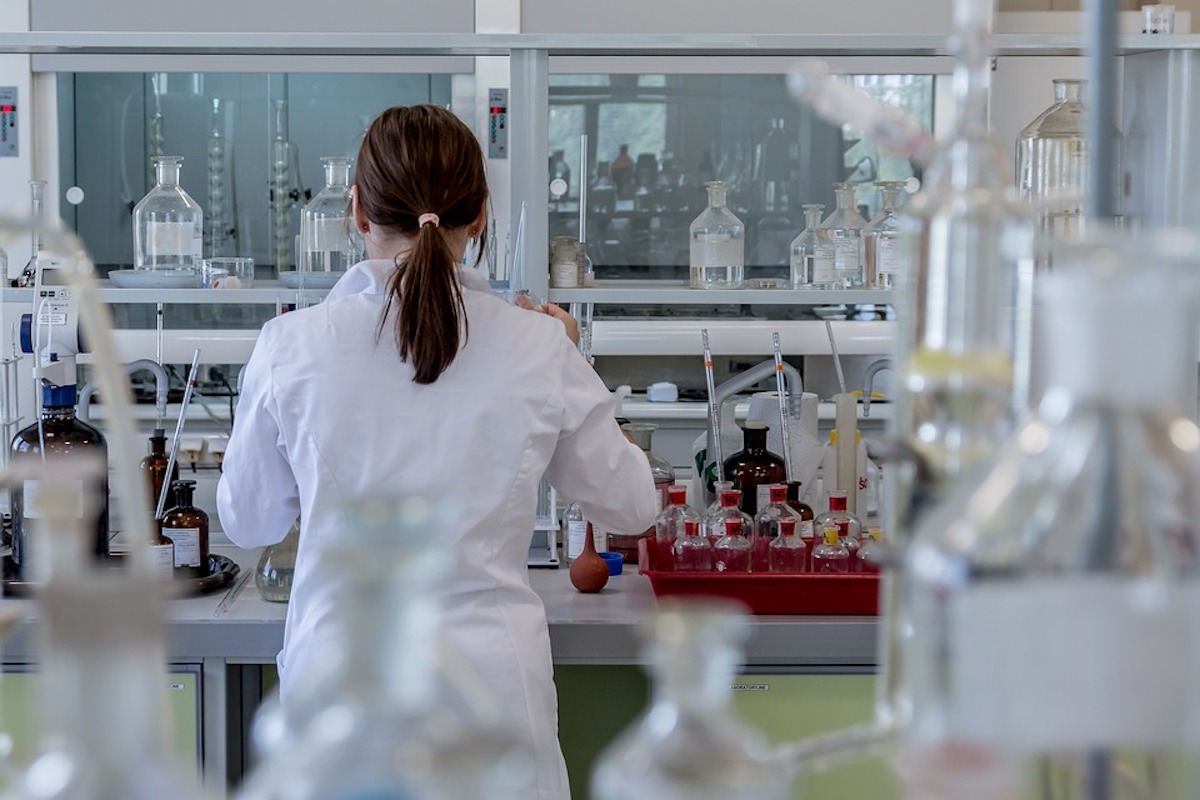Jared Auclair, associate dean of professional programs and graduate affairs at Northeastern’s College of Science and director of Northeastern’s Biopharmaceutical Analysis Training Lab, discusses the roles and responsibilities of biotechnology professionals.
What is A Biotechnologist?
This is a question that I’m asked all the time, and one I have given significant thought to. A biotechnologist uses biological processes to their advantage in industrial and other applications. That is, they use biology in a practical application, such as the production of antibodies or protein drugs such as Humira® (abbvie). A “biotechnologist” is a generic term, however, that does not just apply to the production of protein drugs, but also to agriculture, cosmetics, and other products and industries.
A quick Indeed search for “biotechnology” reveals 8,665 job posts (as of 9/24/18), including titles such as Research Associate, Manufacturing Operations, Quality Assurance, and Algae Biotechnologist. This small sampling of job titles highlights the diversity mentioned above. Due to this diversity, when searching for biopharmaceutical and scientist positions, don’t use the search term “biotechnologist”, as it is merely a general term for a large grouping of jobs, and you will get very limited results.
Download Our Free Guide to Advancing Your Biotechnology Career
Learn how to transform your career in an industry that’s transforming the world.
What Does A Biotechnologist Do?
Technical Responsibilities
Despite the semantics, let’s consider what many biotechnologists do: work in the biopharmaceutical field producing protein drugs. In this part of the field alone, there are several different roles, depending on which part of the drug development process is involved.
At the beginning of the protein drug development process, a biotechnologist might manipulate, or mutate, DNA (genes) to introduce specific mutations that could increase the yield of the product or make the product more efficacious. Or perhaps, a biotechnologist will try to optimize the expression of the protein drug in different cell lines or in different conditions, and then determine the best way to purify the final drug product. After this basic research and development, “scale-up” is needed. Thus, biotechnologists will focus on the best conditions to use to scale up production to manufacturing large amounts of their product and then monitor the quality of the product’s lifecycle. Finally, a biotechnologist may characterize the final product using bioassays, analytical chemistry, and other techniques to ensure the delivery of a safe and effective drug.
In other fields such as agriculture, a biotechnologist may manipulate DNA (genes) to produce a heartier crop that can withstand different climates or pests. In cosmetics, biotechnologists may try to manipulate microorganisms to produce new pigments or ways to keep your skin looking younger.
In each example, these are some of the more technical aspects of a biotechnologists job; however, like every job, this is only a small portion of what their role entails.
Non-technical Responsibilities
Biotechnologists also lead teams and help direct the scientific direction of the company and projects. They may have to write business justifications for projects to continue working on them, or to obtain additional funding. A biotechnologist also communicates the information they’ve gathered in their work to many audiences: through presentations to others in their company, to outside members of the scientific community through presentations and publications, and also often to the public. The most important thing a biotechnologist does, however, is solve problems. It is not enough to just be technically proficient; one must also be able to function within the company’s culture.
The good news is that the biotechnology field is booming with no end in sight. What was once a very localized and specialized field now includes jobs all over the world; from Boston, MA, to San Francisco, CA, to international locations such as Toronto, Ontario, Seoul, South Korea, and more. The diversity of work biotechnologists perform, across many industries and ranging from hands-on positions to desk-oriented roles, allows careers of great opportunity and, most importantly, fun.
To learn more about available roles in the biotechnology field, including job descriptions, salaries, and skills for success, download our guide below.







Related Articles
Compliance Specialists: Who They Are and What They Earn
Science or Science Fiction? The Future of Personalized Medicine
In-Demand Biotechnology Careers Shaping Our Future